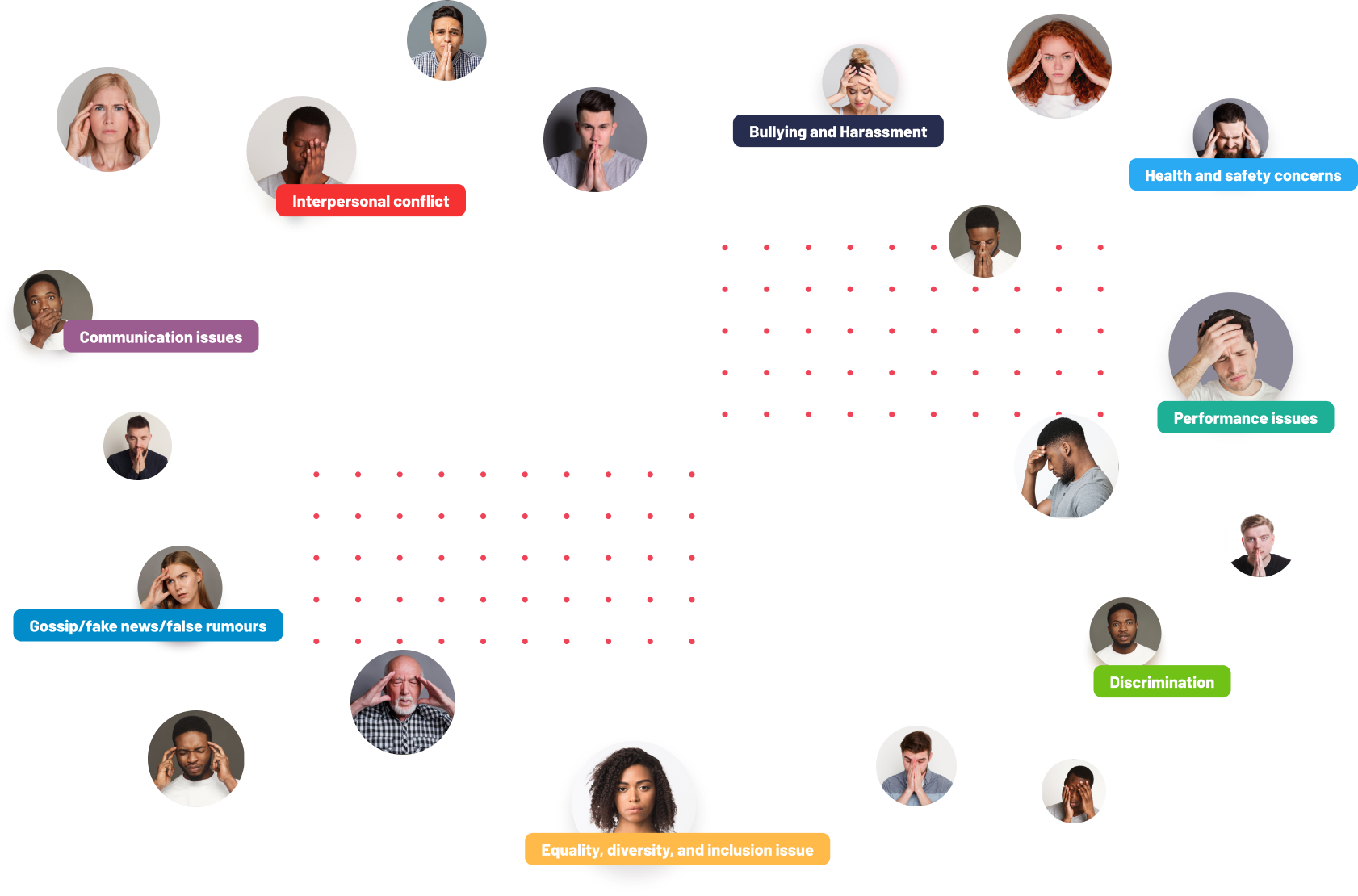Why are workplace issues an issue?
We spend nearly one third of our adult lives at work. In an ideal world and workplace, different roles, expectations, and personalities work together without conflict. However, personality clashes, communication styles, worldviews and a multi-generational workforce can give rise to stress and tension.
Common workplace concerns that employees face include:

A recent *Chartered Institute of Personal and Development report entitled ‘Managing Conflict in the Modern Workplace’ (2020) pointed out that whilst ‘not all conflict is necessarily negative, even a minor disagreement between people can fester and escalate if it’s not addressed and resolved at the earliest opportunity’. The report found that just over a third of respondents experienced some form of interpersonal conflict at work and a third were dissatisfied with how their concerns were dealt with by their employer. What’s more one in five employees felt that their teams were not inclusive enough.
Creating competitive advantage through culture

Culture is a powerful tool which helps to shape reputation from within an organisation. Great organisational cultures attract talent, drive high performance, and create positive experiences for employees and consequently positive experiences for customers, service users or patients.
Toxic work cultures with unidentified or unresolved workplace issues can lead to employee burnout, fatigue, and illness due to high levels of stress. It carries organisational health warnings such as high turnover, high sickness absence, low productivity and poorer outcomes for service users or customers. In the healthcare sector, toxic cultures have been found to have an adverse impact on patient care and quality.
Culture is key
According to research by **Deloitte, 82% of executives say that an organisation’s culture is a potential competitive advantage. However only 12% of respondents believe they are driving the “ right culture” and more than 50% are trying to change an organisation’s culture because of external scrutiny, to attract new talent or in direct response to other issues.
The business case for creating a great culture is compelling, but it can be difficult to achieve in practice. Most organisational transformations and change management programmes fail. This is supported by a study by ***PwC which found that 86% of transformations fail to deliver on benefits, costs or schedule. One of the major causes of failure is a lack of strategic alignment with the organisational strategy and the transformation initiative.
Resolving pain points
Notable HR ® can help to identify and resolve employee pain points through our consultancy services and digital solution.
References
*CIPD report Managing conflict in modern workplaces’, January 2020 Found at
https://www.cipd.co.uk/knowledge/fundamentals/relations/disputes/managing-workplace-conflict-report
**Cultural Risk and Your Organization’s Reputation Found at https://www2.deloitte.com/us/en/pages/risk/solutions/cultural-risk-reputation management.html
***Why transformations fail and what organizations can do about it. Found at
https www.pwc.com/catransform
